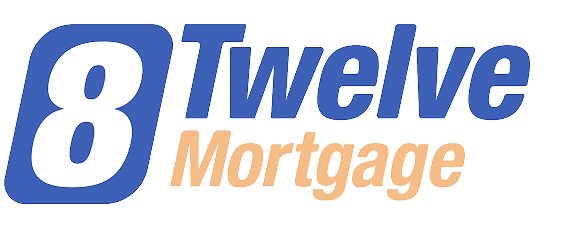
Summary
- Your first year of homeownership is often the most expensive.
- Closing costs, furniture, insurance, utilities, and mortgage payments add up quickly when you first purchase a home.
- You can mitigate many homeownership costs with budgeting, preparation, and resourcefulness.
So you’re inches away from purchasing your first property. Congrats! We know how hard it is to save up for a down payment, especially for a property in the GTA.
But people don’t always talk about the expenses you’ll have to cover once you take ownership. Closing costs, furniture, and more demand a large chunk of change — but a little preparation and planning will help you manage it.
Step one is becoming aware of those initial costs. We’ll walk you through some of the top expenses you’ll face in your first year, and ways to mitigate them.
1. Closing costs
Closing costs can cost anywhere between $10,000 to $40,000, and even more in some cases. These include lawyer and accountant fees, land transfer tax, administrative costs, title search fees, property tax, and a few other costs for closing a real estate deal. We know — tens of thousands of dollars sounds scary on top of a mortgage. But a little digging, prep, and negotiation will help you manage the cost.
Pro tips:
- Chat with a mortgage advisor to learn more about mortgage closing costs.
- Get estimates from lawyers and lenders as early on in the process as possible.
- Ask your real estate agent to create a list of costs you’ll assume if you close the deal on a certain property.
2. Renovations
Renovation costs vary depending on your home’s condition and your preferences. Some fixes are voluntary, while others are essential. That gorgeous granite countertop? Classy, but expensive. You have the power to mitigate renovation costs with a few simple choices. Work within your budget and don’t get starry-eyed at interior design shows. Your time will come! Patience is key when upgrading, so don’t rush to get it all done at the start of your homeownership journey.
The average home costs anywhere between $15,000 to $400,000 to renovate. But keep in mind, foundational and structural issues will cost a lot more than your average floor job. That’s where home inspections come in handy, to make you aware of significant issues before you buy.
Pro tips:
- Don’t do all renovations at once. Start slow and space out renovations over time.
- Try using YouTube to DIY small fixes — get professionals for the big stuff.
- Look for any signs of water damage and inquire with the seller before buying.
- Consider a renovation loan for crucial larger projects, if necessary.
3. Furniture
OK, so you’re not expecting marble vanities or Persian rugs — but furniture will still set your budget back. Even IKEA raised prices around 10% across the board, and 80% for select products!
But outside of inflation, furnishing an entire house or condo still isn’t cheap. Let’s say you’re working with a one-bedroom, 500-sq.ft condo.
You’ll need to save up for:
- Appliances: If you’re buying a condo, you’re usually set for the main appliances. But if they aren’t working well, replacing a basic oven and refrigerator will cost you at least $2,500. So try to ensure these are in working order before purchasing.
- Couches and entertainment: An average couch (three seats, not a love seat) will cost you around $1,000 on the cheaper side. If you’re dreaming of a modern CB2 piece or high-end velvet sectional, you might spend between $1,500-$4,000.
- Bedroom furniture: Factor a bed, mattress, sheets, comforter, dressers, and bedside tables into your budget. If you’re savvy, you might spend a few hundred dollars on vintage pieces. If you’re after a fresh start, you’re looking at $2,000+ for a bedroom set and fixings.
You’re looking at a $4,000-$10,000 ballpark for basic furniture. Now, that sounds intimidating if you buy everything in one shot! But if you scour for deals ahead of time, you can space out the burden.
Pro tips:
- Buy used furniture on Facebook Marketplace, Value Village, or Kijiji.
- Make a list of what you need & wait for big sales at big-box stores like Best Buy and The Brick (We’re looking at you Black Friday).
- Furnish your place over a period of a few months, if you’re able to.
4. Property tax
Toronto’s property tax rate was 0.45% in Toronto for residential homes. If you purchased an $800,000 property, that partial percentage translates to:
0.45% of $800,000 = $3,600
Or for a pricier Toronto home……
0.45% of $1,000,000 = $4,500
These taxes are usually billed in quarterly payments. But if you recently closed on a home where the seller already paid the year’s property tax, you might be on the hook for the remainder upon closing. The solution? You might just need to fork up the cost. But if you’re feeling lucky, you might negotiate your way out of it before closing.
Pro tips:
- Ensure you are setting aside money for property tax. Some folks even open a separate account to ensure they don’t spend those funds.
- Automate payments if you feel confident that you’ll always have money in the account.
- Otherwise, set alarms and reminders to prepare you for property tax payment dates.
5. Utilities
Were your utilities included in your rent? Maybe you paid hydro, but you likely weren’t responsible for gas or waste management. Expect to spend around $150-$300 per month in total utilities. Now’s a great time to channel your inner environmentalist or grab a coffee with your buddy that majored in environmental science. A few energy-saving practices can really make a difference in utility payments. For example, avoid leaving lights on while the sun is shining, unplug your television and chargers when you’re not using it, and keep windows closed while the AC is running.
Pro tips:
- Install energy-efficient fixtures and appliances.
- Be mindful of energy usage during peak times.
- Look into government programs like the Canada Greener Home Grant.
6. Maintenance fees
If you purchased a condo or condo townhome, you might have been enamoured with the pool, gym, or party room. But those amenities come at a cost: maintenance fees. Toronto maintenance fees average at $0.64 per sq. ft — $480 for a 750-sq.-ft one-bedroom.
Remember, maintenance fees are always highest in modern, luxury condos. Your unit might not be too different from the build without a pool, yet you’ll pay less in maintenance fees.
Pro tips:
- Opt for condos with fewer amenities to lower maintenance costs — don’t swoon over pools if you know you won’t swim much.
- Check the status certificate and condo budget audits for any disclosed issues or fund mismanagement.
7. Mortgage, interest & insurance
Toronto’s average mortgage payment was $1,911 in 2021, but insurance and interest can add a few extra hundred dollars to your bill. A well-maintained budget can keep you on track. But perhaps most important is delving out the details with interest rates. They’ve been on the rise this year, which weighs on your monthly payment. But you’re in a great spot right now because you aren’t locked in. Before you sign, consult a financial planner and assess your income stability and risk tolerance. These insights will help you decide if you’re better suited for a fixed-rate or variable-rate mortgage.
Pro tips:
- Use a mortgage broker to shop around for low interest rates.
- Make an informed decision about opting for a fixed-rate or variable-rate mortgage.





